| JOHN DEWEY (1857- 1952) John Dewey was an American philosopher, psychologist, and educational reformer whose thoughts have great influence in education and social reform. Dewey is best known for his writings on education. But he also has written about many other topics, including experience, logic, ethics, inquiry, democracy, nature, and art. John Dewey, one of the greatest American modern thinker's, theorist and educator. John Dewey's Philosophy of Education Dewey defines education as the ' development of all those capacities in the individual which will enable him to control his environment and fulfill his possibilities". It is a process that begins with the very birth of the child, and goes on throughout the whole life. It is a process which has two sides- one. | JOHANN HEINRICH PESTALLOZI (1746- 1827) Pestalozzi's theory of education is based on the importance of a pedagogical method that corresponds to the natural order of individual development and of concrete experiences. To Pestalozzi the individuality of each child is paramount; it is something that has to be cultivated actively through education. He opposed the prevailing system of memorization learning and strict discipline and sought to replace it with a system based on love and an understanding of the child's world. His belief that education should be based on concrete experience led him to pioneer in the use of tactile objects, such as plants and mineral specimens, in the teaching of natural science to youngsters. Running through much of Pestalozzi's writing is the idea that education should be moral as well as intellectual.His theories also influenced the development of teacher-training methods. Although he respected the individuality of the teacher, Pestalozzi nevertheless felt that there was a unified science of education that could be learned and practiced. | MARIA MONTESSORI (1870- 1952) Montessori was one of the fist educator who saw the child as a budding human being with their own strengths, interests, and learning styles that needed to be utilized and connected through an integrated, and systematically organized curriculum. She felt that children DID NOT LEARN BEST THROUGH THE use of rote memorization and were not robots to be force fed information on a pacing calendar. She developed the Montessori Method, a system of education for young children up to about 6 years old.It consists of allowing them to learn in an environment where the child's learning process is through self directed activities, with the teacher present only to remove obstacles in the environment,rather than to provide discipline Most, if not all, of today's preschools and elementary schools use a myriad of Montessori materials in their everyday workings even if they aren't "Montessori" in name, and even state that they disagree with her philosophy, for things like child sized furniture and math manipulative, as well as "real life" skills were first pioneered by Montessori. | JOHANN FRIEDRICH HERBART (1776-1841) Herbart was the first scientist to distinguish instructional process from subject matter. According to Herbart, interest develops when already strong and vivid ideas are hospitable towards new ones, thus past associations motivate perception of current ones. Herbartianism, in predicting that learning follows from building up sequences of ideas important to the individual, gave teachers a semblance of a theory of motivation. Herbart believed that educational methods and systems should be based on psychology and ethics: psychology to furnish necessary knowledge of the mind and ethics to be used as a basis for determining the social ends of education. He also stressed the study of the psychological processes of learning as a means of devising educational programs based on the aptitudes, abilities, and interests of students. The success of Herbart's methods led to their adoption in the teacher-training systems of numerous countries. | EDWARD LEE THORNDIKE (1874-1949) "Considered the father of Educational Psychology, Edward Lee Thorndike was devoted throughout his career to understanding the process of learning. His interest in and contribution to our understanding of learning ranged from studies with animals, children, and eventually with adults. With the exception of animal studies, Thorndike's legacy continues at Teachers College to this day in the form of a building named for him and through graduate programs that focus on child development and learning, adult learning, measurement and evaluation," said W. Warner Burke, Edward Lee Thorndike Professor of Psychology and Education. Educational Psychology, now called "Cognitive Studies in Education" at Teachers College, has evolved from a behaviorist approach in Thorndike's day to a cognitive approach today. "Now, instead of talking about connecting external stimuli and responses, we talk about cognitive mental mechanisms," says John Black, the current Cleveland E. Dodge Professor and the Coordinator of the Cognitive Studies Program "We use mental models of mechanisms to improve performance and to design better learning environments." Today's students have taken cognitive studies in education in different directions, but all have the same goal-to understand how a person learns and processes ideas. Some are developing educational technology based on cognitive theories. Others are looking at how children comprehend texts. Lately, there has been an upsurge of interest in this department doubling the enrollment in the last three years. |
| Friedrich Wilhelm August Froebel (Fröbel) (1782 – 1852). Friedrich Froebel, the German educationalist, is best known as the originator of the ‘kindergarten system’. By all accounts he had a difficult childhood.The purpose of education is to encourage and guide man as a conscious, thinking and perceiving being in such a way that he becomes a pure and perfect representation of that divine inner law through his own personal choice; education must show him the ways and meanings of attaining that goal. | Jerome Seymour Bruner (1915) is a psychologist who has made significant contributions to human cognitive psychology and cognitive learning theory in educational psychology, as well as to history and to the general philosophy of education.The outcome of cognitive development is thinking. The intelligent mind creates from experience "generic coding systems that permit one to go beyond the data to new and possibly fruitful predictions" Bruner important outcomes of learning include not just the concepts, categories, and problem-solving procedures invented previously by the culture, but also the ability to "invent" these things for oneself. Cognitive growth involves an interaction between basic human capabilities and "culturally invented technologies that serve as amplifiers of these capabilities." | Burrus Frederick Skinner (1904-1990) B.F. Skinner is famous for his research on operant conditioning and negative reinforcement. He developed a device called the "cumulative recorder," which showed rates of responding as a sloped line. Using this device, he found that behavior did not depend on the preceding stimulus as Watson and Pavlov maintained. Instead, Skinner found that behaviors were dependent upon what happens after the response. | Benjamin Samuel Bloom(1913-1999) Benjamin Bloom was an American educational psychologist who made contributions to the classification of educational objectives and to the theory of mastery-learning. He also directed a research team which conducted a major investigation into the development of exceptional talent whose results are relevant to the question of eminence, exceptional achievement, and greatness.[1] In 1956, Bloom edited the first volume of Taxonomy of educational objectives: the classification of educational goals, which outlined a classification of learning objectives that has come to be known as Bloom's Taxonomy and remains a foundational and essential element within the educational community as evidenced in the 1981 survey Significant writings that have influenced the curriculum | Sidney Pressey (1888-1972) Father of the teaching machine, author of the first book on standardized testing, and founder of the Division on Adult Development and Aging of the American Psychological Association, Sidney Leavitt Pressey was an innovator. Pressey is also well known for his invention of an intelligence testing machine that he created in 1924. This teaching machine allowed for the automation of teaching and testing of students. Though no “number 2” pencil was required, it was basically a primitive mechanical version of a modern day Scantron (bubble sheet) testing system. |
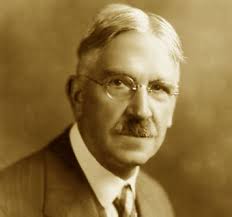
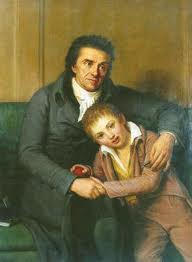


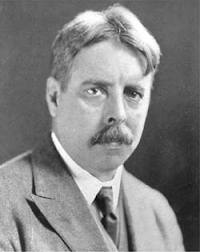


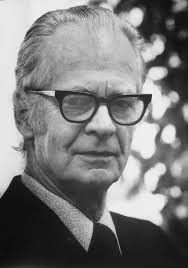
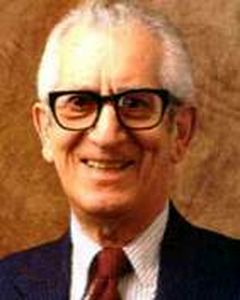

 RSS Feed
RSS Feed